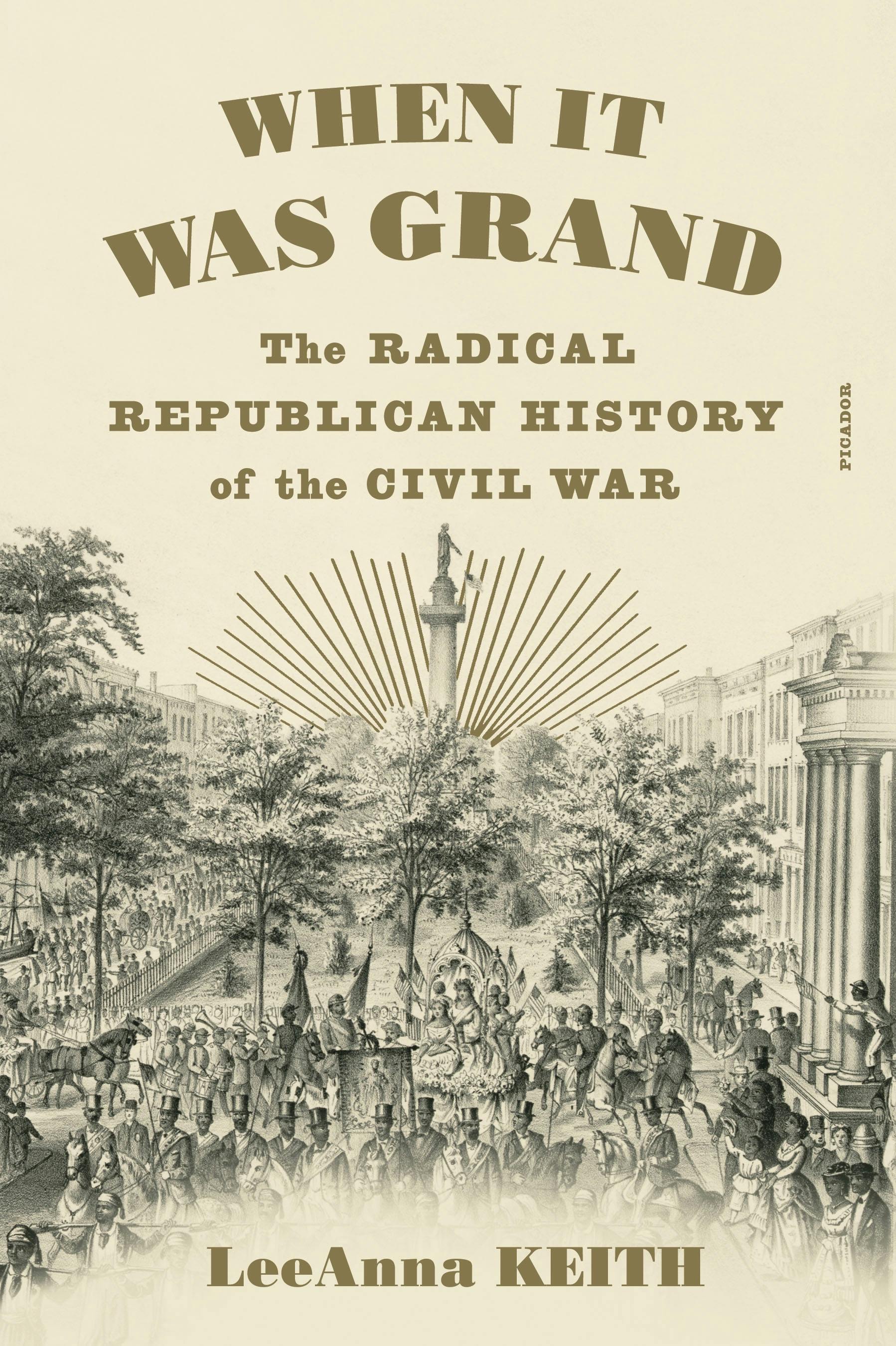LeeAnna Keith’s new book, When It Was Grand, also returns to the mid–19th century, this time to consider the history of Radical Republicanism. In doing so, it adds to our understanding of how a rising tide of violence in the 1850s served as a harbinger of the Civil War, a conflict that culminated in the most radical act in American history: the uncompensated abolition of slavery. The author of The Colfax Massacre, a highly praised study of the bloodiest act of carnage against African Americans during Reconstruction, Keith makes an important contribution by placing Radicals at the center of these transformative events.
Contemporaries regularly referred to the Radical Republicans as a distinct group in the spectrum of Civil War–era politics. While by the 1850s most Northerners opposed the westward expansion of slavery, the Radicals went further, insisting that antislavery action should take precedence over all other political questions and vehemently opposing any talk of compromise with the South. When the Civil War began, they proclaimed that the Union would not emerge victorious without emancipating and arming the slaves. By the time it ended, they helped put equal civil and political rights for black Americans on the national agenda and then took the lead in enshrining them in laws and the Constitution during Reconstruction.
Scholarly assessments of the Radicals have changed over time, reflecting the evolution of historical interpretation of their era and the changing face of American politics and race relations. Repelled by the mass slaughter of World War I and invested in reconciliation between white Northerners and Southerners, many historians in the 1920s and ’30s blamed the Radicals—sometimes called the Jacobins or Vindictives—for whipping up the sectional hostility that produced a “needless” conflict and for foisting black suffrage on the South during Reconstruction, supposedly leading to an orgy of corruption and misgovernment. To the followers of Charles Beard, who taught that political ideologies serve as masks for the interests of powerful economic groups, the Radicals were the shock troops of a new industrial order. In his influential 1941 book Lincoln and the Radicals, the historian T. Harry Williams wrote that “they loved the Negro less for himself than as an instrument with which they might fasten Republican political and economic control upon the South.” In Williams’s view, Abraham Lincoln was a well-meaning but ineffectual leader, outmaneuvered time and again by scheming Radicals.
